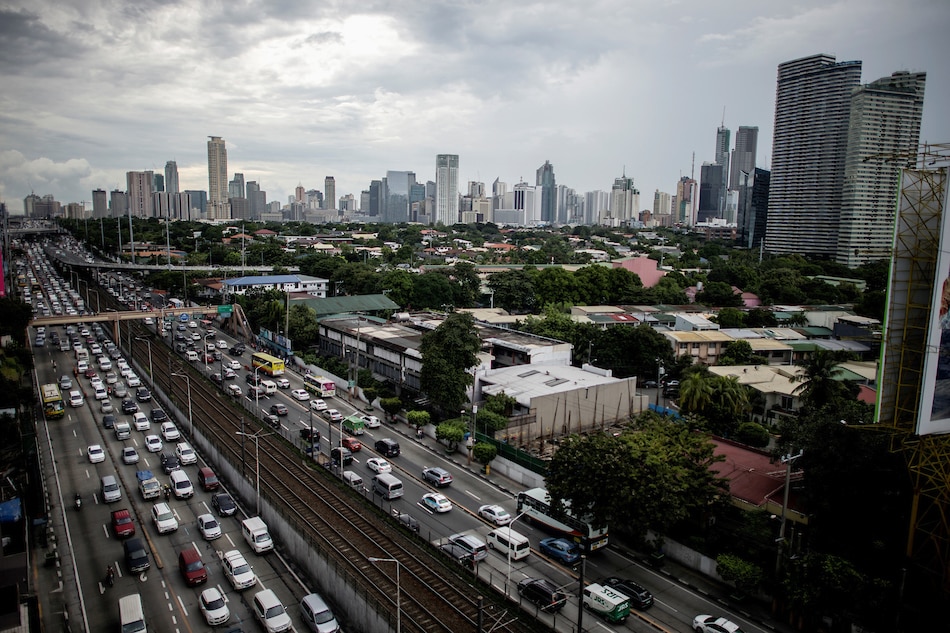Philippine economy to take 10 years to recover from COVID-19: NEDA chief | ABS-CBN
ADVERTISEMENT

Welcome, Kapamilya! We use cookies to improve your browsing experience. Continuing to use this site means you agree to our use of cookies. Tell me more!
Philippine economy to take 10 years to recover from COVID-19: NEDA chief
Philippine economy to take 10 years to recover from COVID-19: NEDA chief
Agence France-Presse
Published Oct 02, 2021 04:39 AM PHT
|
Updated Oct 03, 2021 12:04 AM PHT
MANILA - The Philippine economy will take more than a decade to return to pre-pandemic growth, an official said Thursday, warning the next two generations of Filipinos would be paying for the cost of COVID-19.
MANILA - The Philippine economy will take more than a decade to return to pre-pandemic growth, an official said Thursday, warning the next two generations of Filipinos would be paying for the cost of COVID-19.
Lockdowns and other restrictions aimed at slowing the spread of the coronavirus have shattered the nation's economy, throwing millions out of work and leaving many poor families hungry.
Lockdowns and other restrictions aimed at slowing the spread of the coronavirus have shattered the nation's economy, throwing millions out of work and leaving many poor families hungry.
"Our long run total cost of COVID and the quarantine both to the present and future society -- meaning our children and our grandchildren -- will reach P41.4 trillion" ($810 billion), Economic Planning Secretary Karl Chua said.
"Our long run total cost of COVID and the quarantine both to the present and future society -- meaning our children and our grandchildren -- will reach P41.4 trillion" ($810 billion), Economic Planning Secretary Karl Chua said.
The figure is more than twice the Philippines' gross domestic product in 2020, which the World Bank estimates at $361.5 billion.
The figure is more than twice the Philippines' gross domestic product in 2020, which the World Bank estimates at $361.5 billion.
ADVERTISEMENT
The losses would be felt over the next 10 to 40 years, Chua said.
The losses would be felt over the next 10 to 40 years, Chua said.
Consumption, investment and tax revenues would struggle to recover as social distancing rules prevent key sectors, such as tourism and restaurants, from fully reopening.
Consumption, investment and tax revenues would struggle to recover as social distancing rules prevent key sectors, such as tourism and restaurants, from fully reopening.
Lower productivity caused by death, illness or lack of schooling during the pandemic "is likely to be permanent", he added.
Lower productivity caused by death, illness or lack of schooling during the pandemic "is likely to be permanent", he added.
The economy is expected to expand by four to five percent this year, Chua said, compared with a record contraction of 9.6 percent in 2020.
The economy is expected to expand by four to five percent this year, Chua said, compared with a record contraction of 9.6 percent in 2020.
But it would take 10 years before the country returned to pre-pandemic growth, which averaged 6.4 percent in the 10 years before COVID-19 hit.
But it would take 10 years before the country returned to pre-pandemic growth, which averaged 6.4 percent in the 10 years before COVID-19 hit.
Nearly 70 percent of the economy, including 23.3 million workers, remained under "heightened quarantine" restrictions, Chua said.
Nearly 70 percent of the economy, including 23.3 million workers, remained under "heightened quarantine" restrictions, Chua said.
He warned lockdowns caused greater hunger and were not the answer to the pandemic.
He warned lockdowns caused greater hunger and were not the answer to the pandemic.
The Philippines has recorded more than 2.5 million infections, including over 38,000 deaths.
The Philippines has recorded more than 2.5 million infections, including over 38,000 deaths.
Just over a quarter of the adult population has been fully vaccinated amid a delayed and slow vaccination rollout.
Just over a quarter of the adult population has been fully vaccinated amid a delayed and slow vaccination rollout.
RELATED VIDEO
Read More:
Philippine economy
Economic Planning Secretary Karl Chua
COVID-19
lockdown
Philippine economy post-COVID
Philippine economy rebound
ADVERTISEMENT
ADVERTISEMENT



